What is an insurance appraisal?


As a lawyer representing property owners in property insurance claim disputes, one key process my clients sometimes encounter is insurance appraisal. Here’s an overview of what insurance appraisal is, how it works in North Carolina, who pays for what, the roles within the appraisal panel, how an umpire is selected, and what an insurance appraisal can and cannot decide.
What is Insurance Appraisal?
Insurance appraisal is a dispute resolution process used when the insurer and the insured cannot agree on the value of a claim. It is typically invoked to determine the amount of loss or the cost to repair or replace the damaged property. It is an alternative to litigation and can provide a faster and less expensive resolution.
How Does Insurance Appraisal Work in North Carolina?
- Invoking Appraisal: Either the policyholder or the insurance company can invoke the appraisal clause, which is usually found in the insurance policy. This clause allows for a neutral third party to determine the amount of the loss.
- Selection of Appraisers: Both parties select their own appraiser. The policyholder and the insurance company each choose one appraiser who is impartial and competent.
- Role of the Appraisers: The selected appraisers will inspect the damage independently and try to agree on the amount of the loss. They will discuss their findings and attempt to reach a consensus.
- Selection of an Umpire: If the two appraisers cannot agree on the amount of the loss, they will select an umpire to resolve the differences. If they cannot agree on an umpire, a court of competent jurisdiction may be asked to appoint one.
- Role of the Umpire: The umpire reviews the appraisers’ findings and makes a final decision if they cannot agree. The decision of any two of the three (the two appraisers and the umpire) will determine the amount of the loss.
Who Pays for What?
– Appraiser Fees: Each party is responsible for paying their own appraiser.
– Umpire Fees: The costs associated with the umpire are typically split equally between the policyholder and the insurance company.
Positions on the Appraisal Panel
- Policyholder’s Appraiser: An independent appraiser chosen by the policyholder to represent their interests and assess the damage.
- Insurance Company’s Appraiser: An independent appraiser chosen by the insurance company to represent their interests and assess the damage.
- Umpire: A neutral third party selected by the appraisers (or appointed by the court) to make a final decision if the appraisers cannot agree.
What Can Insurance Appraisal Decide?
– Amount of Loss: The primary purpose of the appraisal process is to determine the amount of the loss or damage to the property.
– Cost of Repair/Replacement: It can also decide the cost to repair or replace the damaged property.
What Insurance Appraisal Cannot Decide
– Coverage Issues: Appraisal does not decide issues of insurance coverage. For instance, whether the damage is covered under the policy or whether exclusions apply is beyond the scope of appraisal.
– Legal Issues: Any legal questions or disputes regarding the terms of the policy or the conduct of the parties are not resolved through the appraisal process.
Conclusion
In certain cases, the insurance appraisal process in North Carolina can be used to resolve disputes over property damage claims efficiently. It offers a streamlined way to determine the amount of loss without resorting to lengthy litigation. However, it is important to remember that appraisal is limited to assessing the value of the loss and does not address coverage or legal issues.
If you are involved in an insurance appraisal process and need legal assistance, it is advisable to consult with a professional who can help navigate the complexities and ensure your interests are represented.





